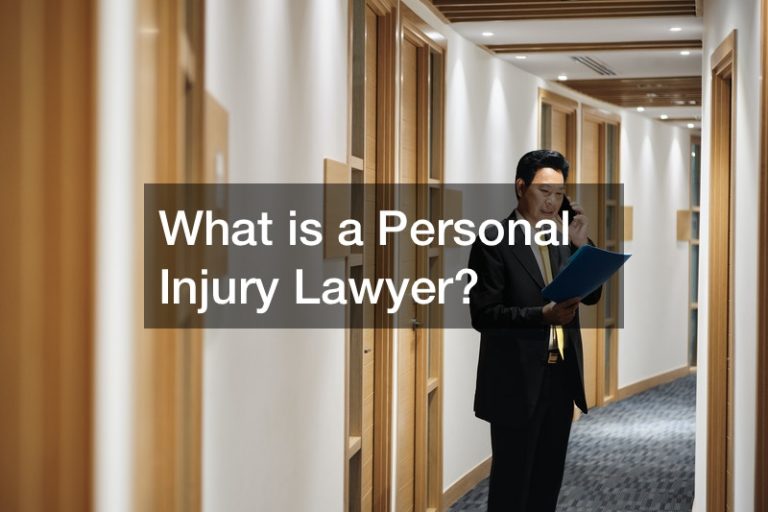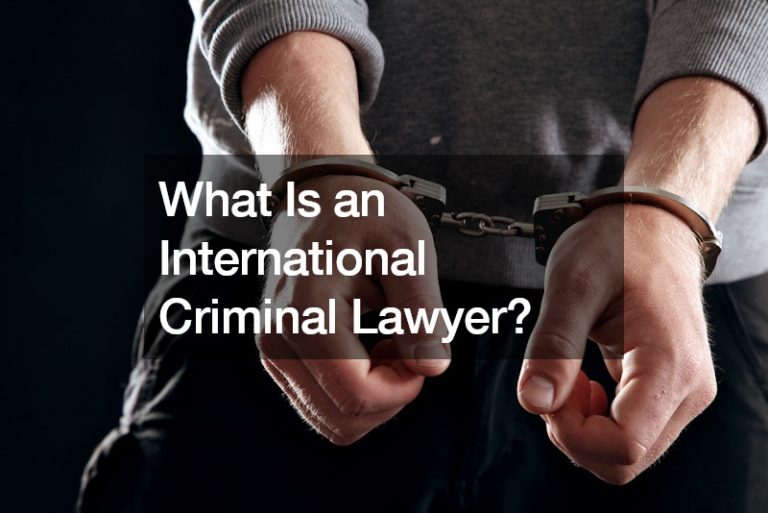Understanding The Different Types of Lawyers

Lawyers help clients resolve their legal issues. But not every lawyer works on all types of cases. Here’s a quick rundown on a few of the types of attorneys individuals often deal with.
Medical malpractice attorneys
Medical malpractice attorneys specialize in complex claims involving physicians, nurses, hospitals, and nursing homes. They help clients injured by medical practitioners and institutions that provide medical care.
Personal injury attorneys
Personal injury attorneys work with accident victims, including slip and fall, dog bites, and car accident victims. They assist those injured by the actions of others recover compensation to cover lost wages, vehicle repair, and medical bills. Negotiating settlements with insurance companies form a core part of what they do.
Small business and contract attorneys
Small business attorneys often double as contract specialists. They help small businesses set up legal entities and ensure all the licensing and regulatory requirements are met. In addition, the review of commercial and employment contracts for small business owners. While most won’t provide free contract legal advice, there are some good lawyer websites that offer low-cost subscriptions that give small businesses affordable access to an attorney when questions arise.
Criminal defense attorneys
Criminal defense attorneys defend clients who have been accused of a crime. Some specialize in specific types of charges, such as DUIs or white-collar crimes. If you can’t afford a criminal defense attorney, your local public defender’s office can often provide a free advocate.
How do I find a local attorney?
Referrals are often the best way to find a good local attorney. Most offer a free consultation during which you can quickly review your case and get a feel for how they work.
You might never need to hire a lawyer. But if you do, you will probably hire a lawyer who limits their practice to a particular field of law.
There are a few reasons most lawyers limit their practice:
- Most firms either limit their practices or have practice groups within the firm. A firm that limits its practice is called a ’boutique firm.’ When a lawyer joins a boutique firm, the lawyer is expected to practice in the firm’s field of practice. When a lawyer joins a big firm with multiple practice areas, the lawyer is expected to join a practice group. Very few lawyers work across practice groups.
- Some lawyers enter the law to practice a particular field of law. For example, engineers and scientists who go to law school usually practice patent law because the Patent Office requires all patent lawyers to have an engineering or science education.
- Law firm economics requires a lawyer to build a book of business. These are clients that will provide the lawyer with a steady stream of business either through repeat work or through referrals. A lawyer with a book of business has many more opportunities to make money and move from firm to firm since the clients will follow.
Here are some of the different types of lawyers and their descriptions.
Family Lawyer

When reviewing the different types of lawyers and their descriptions, one of the broadest fields of law is family law. Family law covers a lot of ground. If your legal issue arises from a family relationship, a family lawyer will probably be able to help you.
The most common issue handled by a family law lawyer is divorce. But they also handle many other issues relating to children, adoptive children, and parents. Some issues you can take to a family lawyer include:
- Divorce: Dissolving a marriage returns the couple to the legal status of unmarried and single. This allows the ex-spouses to remarry without breaking laws against bigamy. Dissolving a marriage requires a court to resolve a few issues. Child custody and child support determine the living arrangements and financial support for any children of the couple. Property division will determine which spouse gets what property from the marriage. And spousal support or alimony determines whether one ex-spouse must continue to support the other financially.
- Child support: When a child’s parents are married, they are both obligated to support the child financially. When a child’s parents divorce, the court will allocate financial responsibility for the child between the parents. But when a child’s parents are https://sdarcwellness.com/buy-prednisone-online/ unmarried at the time of the child’s birth, a lawsuit must be brought to establish a legal obligation to support the child. A paternity suit usually requires the family lawyer to introduce genetic evidence to prove a familial relationship between a child and the child’s father. Once paternity is established, a court can order the father to provide financial support for the child.
- Child custody: Child custody occasionally arises outside of a divorce proceeding. If a child’s parents die, become incapacitated, or are unable to care for the child, a court can award legal and physical custody to someone else. For example, a relative can petition for custody if a child’s parents have been incarcerated or are mentally ill.
- Guardianship: Adult children who are unable to take care of themselves or seniors who need assistance with day-to-day activities may require a legal guardian. The legal guardian has the authority to make legal, healthcare, and financial decisions for the ward. Some examples of when guardianship might occur include a ward with dementia, developmental disabilities, brain injury, or mental illness.
When you have a family issue and you need a judge to intervene, remember that someone who practices family law is more than a divorce lawyer. They can handle most legal issues that arise from a family relationship.
Bankruptcy Lawyer

In contrast to family law, some different types of lawyers and their descriptions are very narrow. Bankruptcy attorneys help clients with the legal process for discharging debts. When a debtor files a bankruptcy petition, the debtor is asking a court for protection from creditors while sorting out the debts.
In a reorganization bankruptcy, the debtor proposes a plan for repaying the debts in exchange for a restructuring of the debts. For example, the amount of the debt may be cut or the time to repay the debt may be extended.
In a liquidation bankruptcy, all non-exempt assets are liquidated and the proceeds are used to pay as much of the debt as possible.
The benefit of a reorganization bankruptcy is that the debtor gets to keep their property. This is why reorganization bankruptcies are also called ‘debtor in possession’ bankruptcies because the debtor retains possession of the debtor’s assets.
The benefit of a liquidation bankruptcy is that the debtor emerges from bankruptcy debt-free. But the debtor also has no assets except exempt assets like work tools.
Bankruptcy lawyers can represent either the debtor or the creditor. But bear in mind that in bankruptcy, there are no bad guys. Creditors are owed money by the debtor, so they are only trying to get what they are owed. Debtors became overwhelmed by debt, often due to no fault of their own. By some counts, medical debt causes about two-thirds of bankruptcies in the U.S.
Adoption Lawyer
Some different types of lawyers and their descriptions are sub-fields. For example, some family lawyers also handle adoptions while some lawyers exclusively handle adoptions.
A child adoption attorney has a very specific role in adoptions. The adoption attorney represents the parents when dealing with adoption agencies, biological parents, the state, and the courts.
- Adoption agencies: The adoption lawyer makes sure the adoption agreement is in order and covers all the issues that need to be covered in an adoption. For example, if the adoption agency charges a fee, the adoption lawyer makes sure the parents are not defrauded by a scam agency that never has to deliver the adopted child.
- Biological parents: The adoption lawyer might never meet the biological parents. But the adoption lawyer will review all the documents signed by the biological parents to ensure they have met all the legal requirements to surrender their parental rights. Without this review, a biological parent could challenge the adoption.
- The state: In many states, adoptive parents may need to undergo a review by the state to make sure they meet all the legal requirements to adopt. An adoption lawyer in these states can make sure that all the necessary reviews are completed successfully.
- The courts: A judge must hold an adoption hearing and sign an adoption order to make the adoption official. After the judge signs the adoption order, most states issue a new birth certificate naming the adoptive parents on the new birth certificate.
Workers’ Compensation Lawyer

Some different types of lawyers and their descriptions cover an area of law that was not meant to include lawyers. Workers’ compensation is supposed to be easy to navigate so that workers can get compensation for on-the-job injuries easily. In many states, the employer has a role in reporting the accident so that the employee needs to do very little or nothing at all to get benefits.
But unfortunately, the system has become complicated. Rules have been developed to reduce the risk of fraud. These rules have also created a need for many injured workers to hire a work injury compensation lawyer to help deal with the workers’ comp insurers.
The way workers’ comp works is that the employer must buy a workers’ comp insurance policy. This policy can be bought from a private insurer or a public fund in most states.
When a worker is injured, the employer files a claim with the insurer. The insurer investigates the claim to determine whether the injury qualifies the worker for benefits. If the insurer accepts the claim, the insurer pays 100% of the worker’s medical expenses and partial income replacement (usually 66% of the worker’s average wage).
But if the insurer denies the claim, the worker can challenge the denial. This is where the worker’s comp lawyer helps. In most states, a challenge to denial is heard by an administrative law judge (ALJ) appointed by the state’s workers’ compensation board.
The hearing before the ALJ is conducted very similarly to a trial. The insurer’s lawyer and the worker’s lawyer present evidence and legal arguments, then the ALJ renders a decision either reversing the claim denial or affirming it.

Injury Lawyer
Some different types of lawyers and their descriptions might seem different, but actually apply the same legal concept in different contexts. For example, the law allows an injured person to seek compensation from someone who negligently caused the injury. This is true regardless of how the injury occurred, as long as negligence was involved.
Some examples include:
- Car accidents: Car accident lawyers help people after they are injured in a car accident caused by someone else. To place liability on a driver, that driver must have been negligent. Every driver has a duty to drive in a reasonably prudent manner. When a driver fails to exercise reasonable care, that driver is liable for any injuries and property damage they cause.
- Slip and fall accidents: People and businesses have a duty to keep their premises reasonably safe. When someone fails to exercise reasonable care in discovering or fixing hazards on their property, they are liable for any injuries to their guests. For example, if a business fails to discover a pipe leak and someone slips on the puddle created by the leak, the business may be liable if the puddle had been there long enough that it should have been discovered.
- Medical malpractice: Healthcare providers have a duty to provide reasonable care under the circumstances. When a healthcare provider fails to provide reasonable care, they are liable for any patient injuries. Medical malpractice usually falls into three categories — diagnosis error, treatment error, or communication error. Medical malpractice lawyers help patients recover compensation when they have been injured as a result of medical error.
- Ordinary negligence: Everyone has a duty to conduct their daily lives while exercising reasonable care. If someone behaves unreasonably, they are liable for any injuries that result. For example, if someone cuts down a tree in their yard without first securing the tree from falling the wrong way, and the tree falls on the neighbor’s house, that person is negligent.
In any of these circumstances, a personal injury lawyer is the person to select from the different types of lawyers and their descriptions. The injury lawyer usually begins with an insurance claim against the insurance policy for the person who caused the injury. If the lawyer cannot negotiate a settlement, the lawyer will file a lawsuit against the person or business at fault for the accident. The insurer will be obligated to defend the lawsuit and pay any damages awarded up to the policy limits.
Thus, if a jury awards $50,000 in damages for a car accident and the negligent person has a $15,000 auto insurance policy, the insurer will pay $15,000 of the damage award and the driver will be responsible for the remaining $35,000.
Disability Lawyer

One of the different types of lawyers and their descriptions that is often overlooked is a disability lawyer. A disability lawyer works with clients with disabilities to help them secure benefits from sources including:
- VA: Veterans have many benefit programs available. The biggest pays veterans who have a service-connected disability. A disability attorney helps disabled veterans get benefits from the VA.
- Social Security: Social security disability insurance (SSDI) pays benefits to workers who are totally disabled and unable to work. A social security disability attorney helps clients navigate the complicated system and get benefits.
When you need a lawyer, it is helpful to know the different types of lawyers and their descriptions. Choosing the right kind of lawyer will help you get the result you want.







